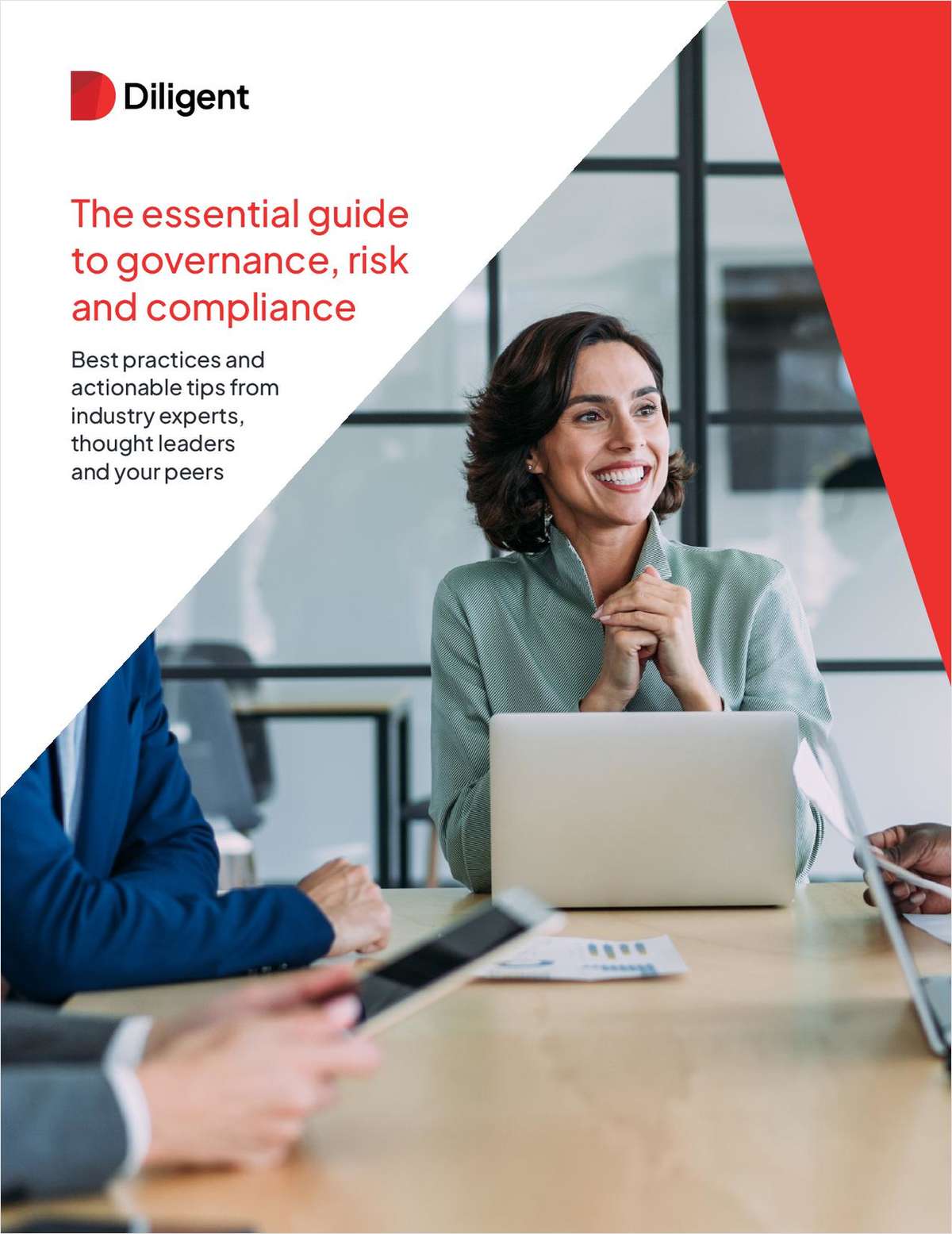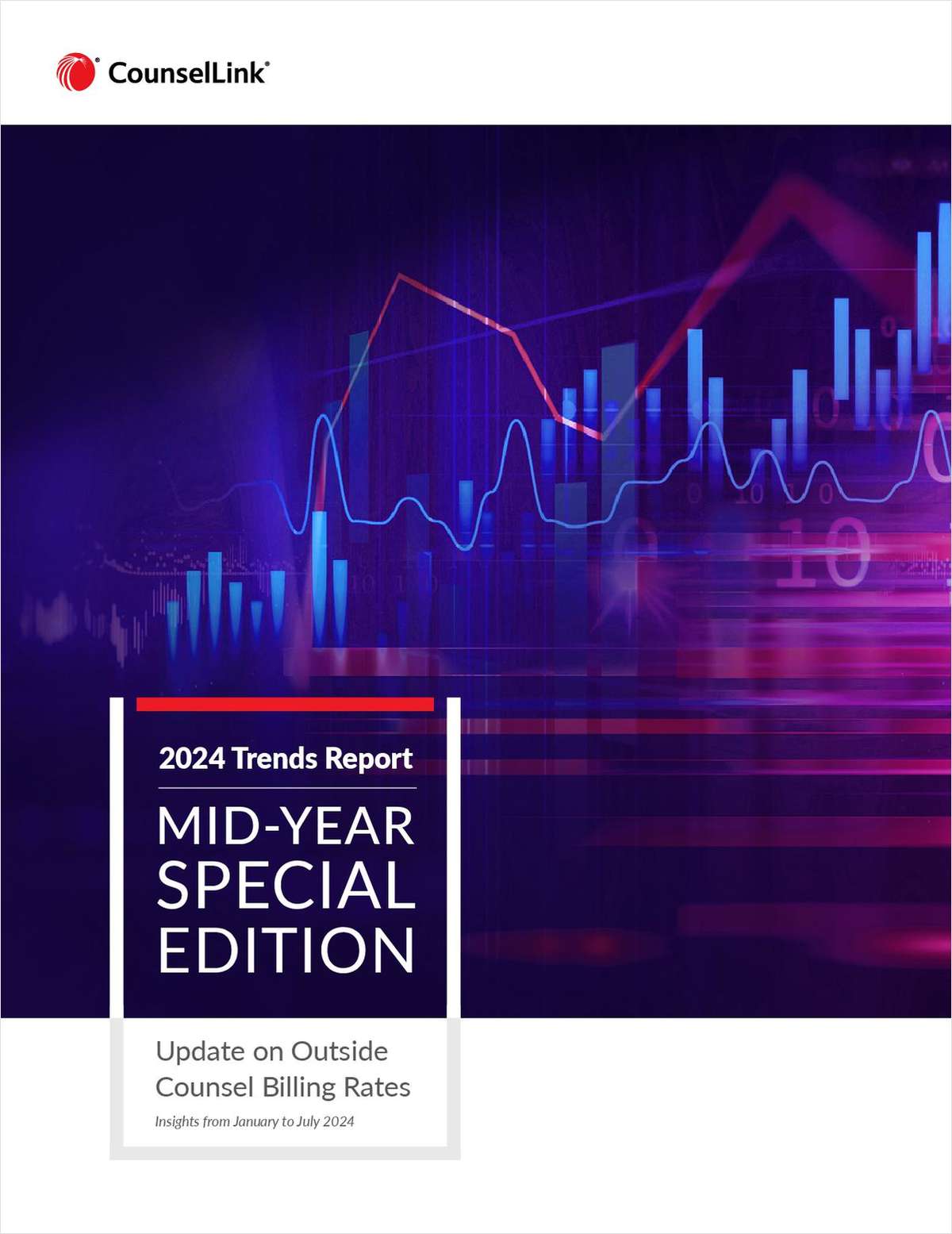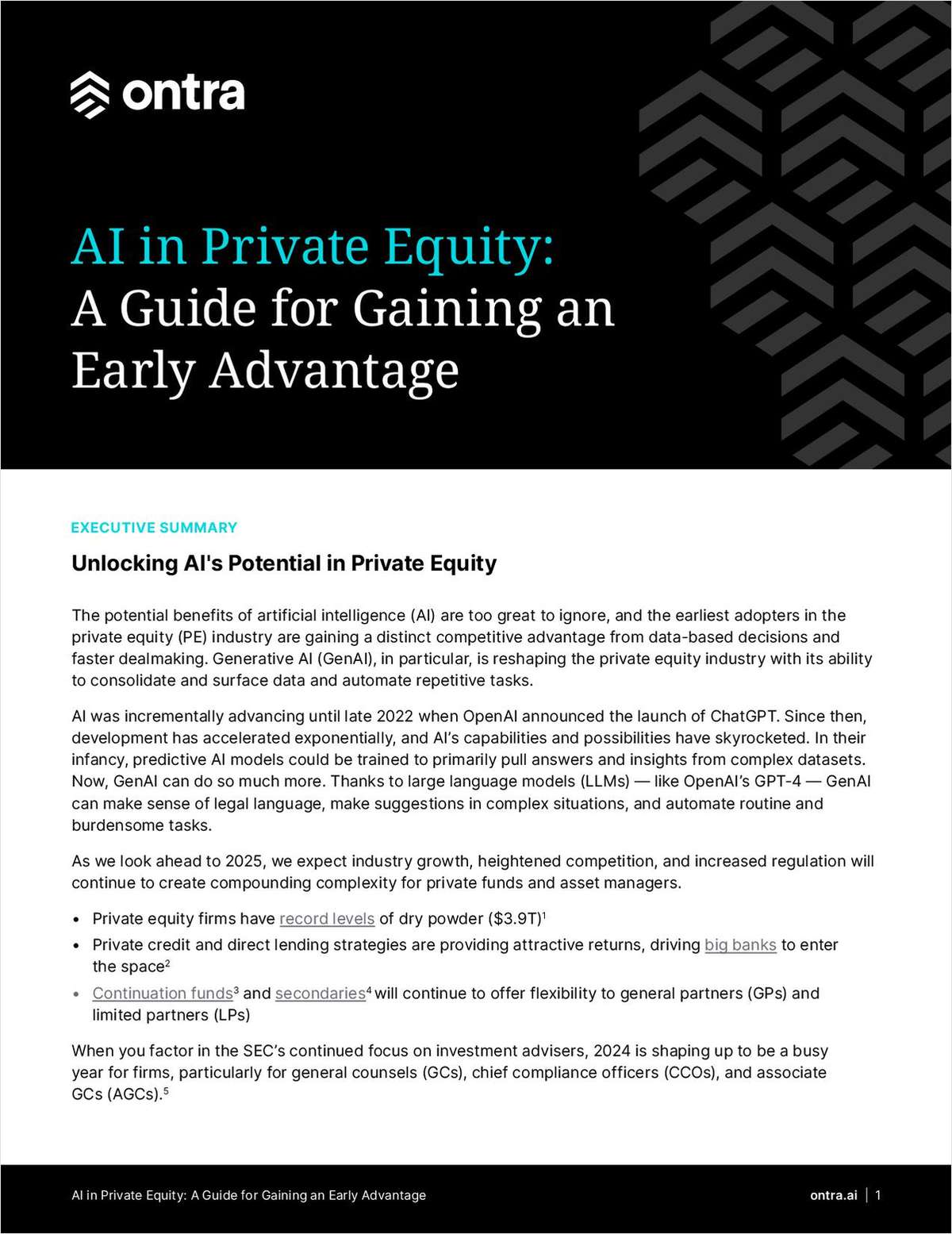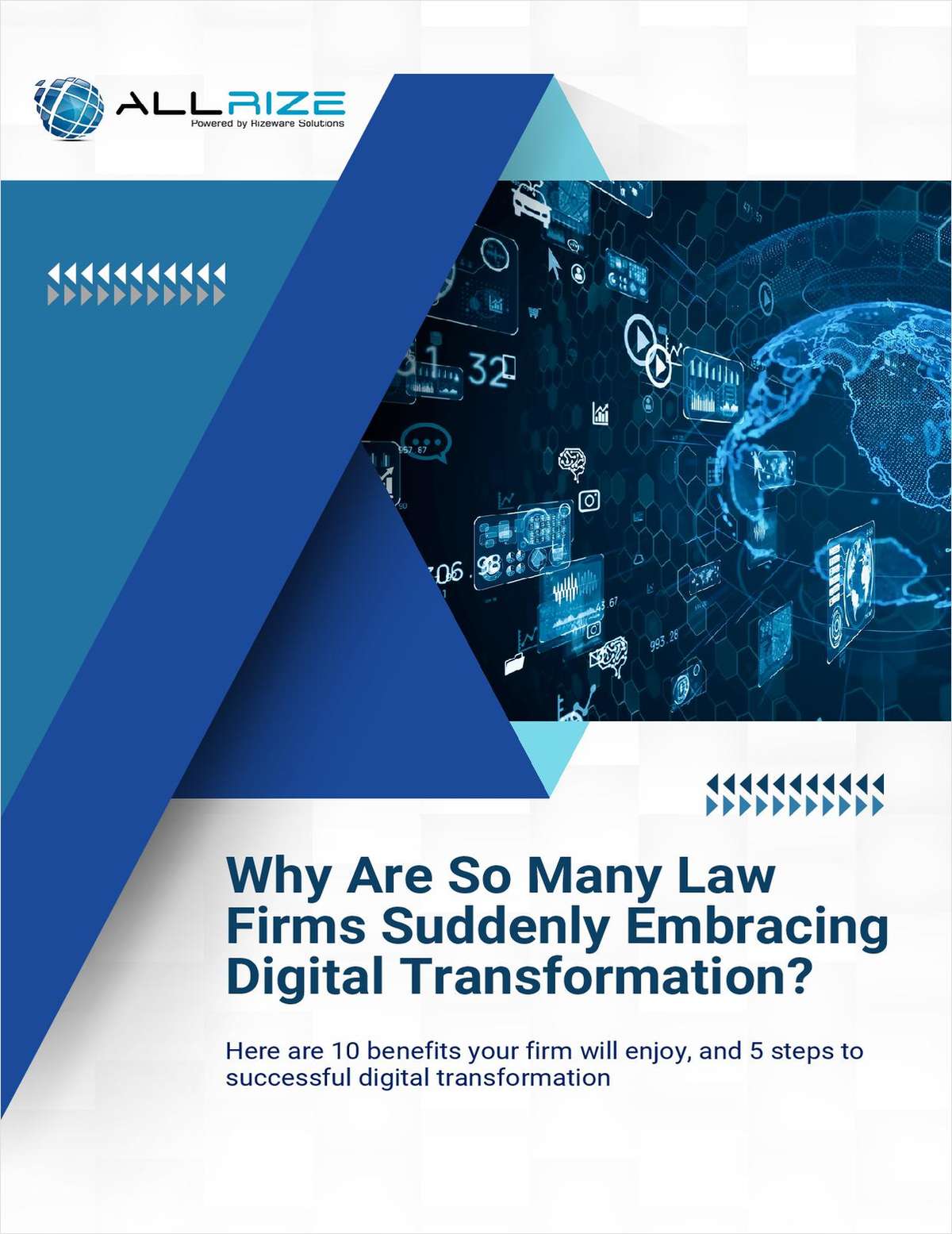When It Comes to Anti-Money Laundering, Challenges Abound for Compliance Pros
When Thomson Reuters surveyed a global group of legal and compliance professionals recently about anti-money laundering issues, nearly one-third…
September 28, 2017 at 09:20 AM
3 minute read
The original version of this story was published on Law.com
When Thomson Reuters surveyed a global group of legal and compliance professionals recently about anti-money laundering issues, nearly one-third said their companies have experienced some form of a regulatory action in this space.
But 16 percent said they weren't sure, an answer that really bothered Mark Haddad, vice president of the corporate segment for Thomson Reuters.
Thomson Reuters conducted the survey of 438 AML compliance leaders connected with the Association of Certified Anti-Money Laundering Specialists, and Haddad discussed the results at a recent ACAMS conference.
“How can I mobilize a large group of people to comply with regulations or with a consent decree if 16 percent aren't even sure if their company is subject to an action?” Haddad asked in an interview with Corporate Counsel. “It highlights the operational challenge for this group, and the disconnect going on in their operations.”
Respondents said the greatest operational challenges for their financial institutions stemmed from increased regulations (38 percent), a lack of properly trained staff (31 percent) and budget constraints (28 percent).
“As new regulations continue to be implemented, two-thirds of the survey respondents noted they anticipate an increase in their workload in the coming year related to anti-money laundering and customer due diligence,” Haddad said.
And among the challenges, the professionals said the rules creating the most workload were local regulations, such as those from the New York Department of Financial Services. In second place were the ultimate beneficial owner (UBO) rules enacted by the Financial Crimes Enforcement Network; the UBO rules are set to take effect in May 2018.
The FinCEN rules require financial institutions to validate who is the beneficial owner of any account. According to the survey, at the moment, 89 percent of organizations simply verify UBO information by asking the customer, who may be a frontman for a money launderer.
Some 58 percent of survey participants cite the inability to validate UBO data as their greatest operating challenge.
Only three in five respondents said they were confident their organizations will be able to comply with the new FinCEN rules by the deadline.
In other findings, the report said:
• An estimated $800 billion to $2 trillion is laundered every year by the global financial industry, often making it an unwitting financier for terrorist networks, drug cartels and other criminal groups.
• While filing timely and accurate suspicious-activity reports is vital for an effective AML program, a majority of survey participants stated they did not know how many of their reports were false positives or false negatives.
• The top priority for the professionals in the next year is to improve data management and quality.
• Making more informed budget decisions is key, as 72 percent of respondents did not know their organizations' dedicated budget for anti-money laundering/customer due diligence screening.
This content has been archived. It is available through our partners, LexisNexis® and Bloomberg Law.
To view this content, please continue to their sites.
Not a Lexis Subscriber?
Subscribe Now
Not a Bloomberg Law Subscriber?
Subscribe Now
NOT FOR REPRINT
© 2024 ALM Global, LLC, All Rights Reserved. Request academic re-use from www.copyright.com. All other uses, submit a request to [email protected]. For more information visit Asset & Logo Licensing.
You Might Like
View All
Inside Track: Late-Career In-House Leaders Offer Words to Live by

In-House Leaders Trying to Contain Political Divisiveness Face Maze of Challenges
5 minute read
Meta Directors Accused of Deleting Emails Discussing Cambridge Analytica, FTC Settlement
3 minute read
FTC Bans Exec From Chevron Board—Exercising Authority It Doesn't Have, GOP Dissenters Say
5 minute readTrending Stories
Who Got The Work
Stephanie Lamerce of Duane Morris has entered an appearance for MillerKnoll, the Michigan-based furniture company formerly known as Herman Miller, in a pending website accessibility class action. The complaint, filed Aug. 30 in New York Eastern District Court by Stein Saks, contends that the defendant's website is inaccessible to screen readers and denies full access to blind and visually-impaired individuals. The case, assigned to U.S. Magistrate Judge Cheryl L. Pollak, is 1:24-cv-06106, Hernandez v. Millerknoll, Inc.
Who Got The Work
General Motors has turned to attorney Nancy D. Green of Ricci Tyrrell Johnson & Grey to defend a pending breach-of-warranty lawsuit. The case, for claims under the Magnuson-Moss Warranty Act, was filed Aug. 30 in Pennsylvania Eastern District Court by the Lemon Law Group Partners on behalf of the purchaser of a new 2022 GMC Sierra 1500 vehicle. The case, assigned to U.S. District Judge Jeffrey L. Schmehl, is 5:24-cv-04595, Fey v General Motors LLC.
Who Got The Work
Katten Muchin Rosenman partners Joseph M. Janusz, Deepro R. Mukerjee and Lance A. Soderstrom have entered appearances for Mylan Pharmaceuticals in a pending patent infringement lawsuit. The suit, filed Aug. 30 in West Virginia Northern District Court by Kirkland & Ellis and Carey, Douglas, Kessler & Ruby, asserts a single patent pertaining to diabetes medications Tradjenta and Jentadueto. The suit contends that the defendant's abbreviated new drug application, which seeks FDA approval for the marketing and sale of a generic version of the plaintiff's product, will violate the plaintiff's asserted patent. The case, assigned to U.S. District Judge Thomas S. Kleeh, is 1:24-cv-00082, Boehringer Ingelheim Pharmaceuticals Inc. et al v. Mylan Pharmaceuticals Inc. et al.
Who Got The Work
Christopher J. DeGroff, Andrew L. Scroggins and Samantha L. Brooks from Seyfarth Shaw have stepped in to represent AG Equipment Company in a pending lawsuit over alleged employment discrimination under the ADA. The case was filed Aug. 30 in Oklahoma Northern District Court by the Equal Employment Opportunity Commission on behalf of five former employees who contend that they were wrongfully terminated after seeking accommodations from the defendant's COVID-19 vaccine mandate. The case, assigned to U.S. District Judge Sara E. Hill, is 4:24-cv-00403, Equal Employment Opportunity Commission v. AG Equipment Company.
Who Got The Work
Samantha J. Hughes of Dykema Gossett has entered an appearance for Home Depot in a pending slip-and-fall personal injury lawsuit. The suit was filed Aug. 30 in California Central District Court by Countrywide Trial Lawyers on behalf of Ernestina Rolon. The case, assigned to U.S Magistrate Judge Karen L. Stevenson, is 2:24-cv-07451, Ernestina Rolon v. The Home Depot, Inc. et al.
Featured Firms
Law Offices of Gary Martin Hays & Associates, P.C.
(470) 294-1674
Law Offices of Mark E. Salomone
(857) 444-6468
Smith & Hassler
(713) 739-1250








